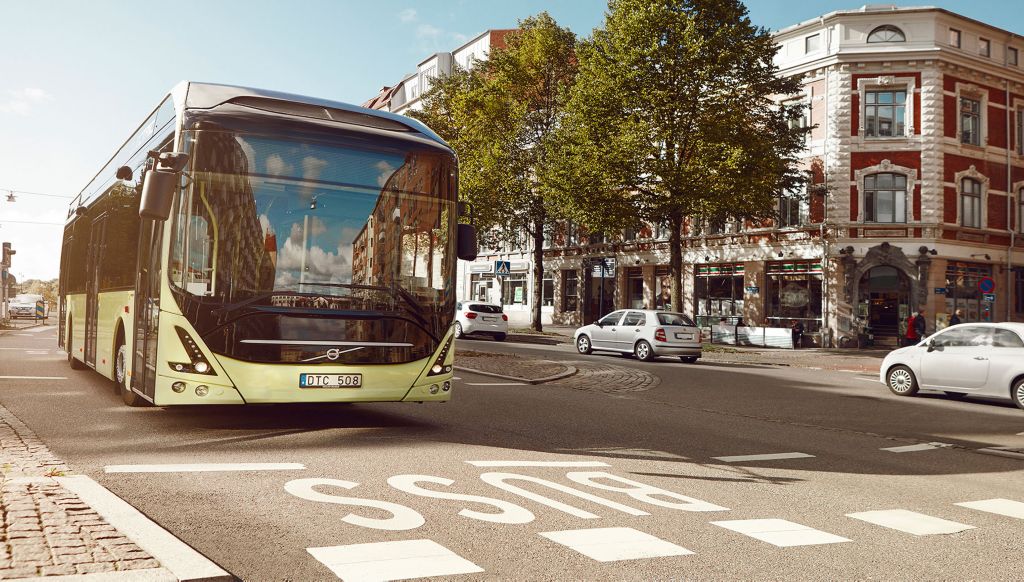Volvo sells electric buses to Luxembourg


Sales-Lentz, one of the largest public transport operators in Luxemburg, is a forerunner in the introduction of alternative drive technologies. It was the first company to buy Volvo Hybrids in Europe as early as in 2009. Today, they have 24 Volvo hybrids and 12 Volvo electric hybrids in their fleet.
Sales-Lentz now takes the next step in electrification with the purchase of four Volvo 7900 Electric buses. The buses will operate in the city of Differdange in south-western Luxembourg.
The buses are sold as a turn-key solution. Volvo will be responsible for vehicle servicing including battery maintenance for a fixed monthly cost. Traffic start is planned for the second quarter of 2017.
“With this new efficient technology developed by Volvo, Sales-Lentz promotes the ambition of the City of Differdange to build a sustainable change for the transportation of persons and improve the quality of life for citizens. Change is the parent of progress”, said Wolfgang Schroeder, Managing Director, Sales-Lentz.
“Engaged for many years, we have implemented an ambitious plan to sustainably envisage our city. Called "Differdangechange", we want to rethink the effectiveness of all our actions, particularly our communal transport "Diffbus". We are proud that our City-bus can be continued in a pioneering system and participate to an exemplarity in Luxembourg, together with the stakeholders, for preserve our living city and our environment”, said Roberto Traversini, Mayor of the city of Differdange.
“Electric bus systems is a cost-efficient solution for cities to reduce the problems of poor air quality and noise. Emission-free, silent buses also open up entirely new possibilities for urban planning”, said Håkan Agnevall, President Volvo Buses.
The buses will be charged with opportunity charging (fast charging at end stops). To facilitate the introduction of electric bus systems in European cities, Volvo together with several other manufacturers of buses and infrastructure agreed this spring to an open interface between electric buses and charging infrastructure. The system includes automatic contacting by a pantograph, wireless communication, contacting plates and infrastructure equipment that automatically contact vehicles with a pantograph.
Volvo 7900 Electric
• All-electric two-axle 12-metre long city bus with low floor and three doors.
• 80 % lower energy consumption than a corresponding diesel bus.
• Quiet, emission-free operation
• Equipped with an electric motor and lithium ion batteries.
• The batteries can be charged at the end stops in three to six minutes.
• Bright and airy interior.
• 85 passengers.
*Recharging time depends on topography, load and climate conditions.
OppCharge
• Open interface between charging station and vehicle
• Offering charging power of 150 kW or 300 kW
• Charging takes 3-6 minutes
• Inverted pantograph enables use of a low-cost and low weight interface on roof of the bus
• Conductive static charging with pantograph where communication between bus and charging station is done via WiFi